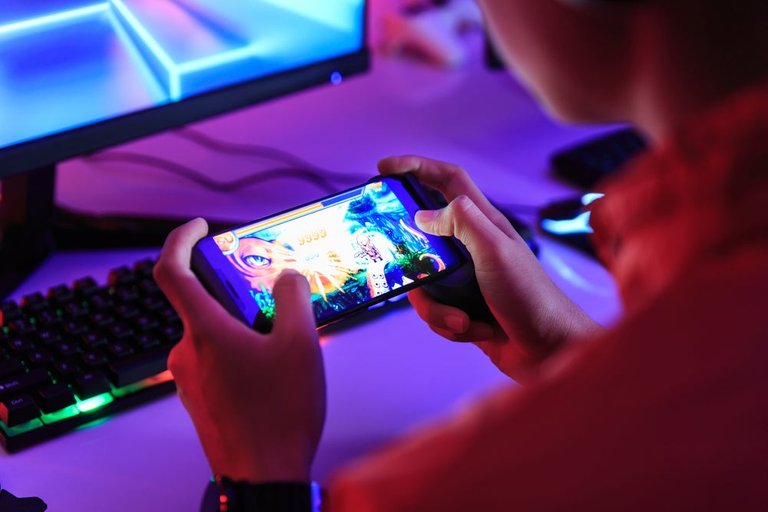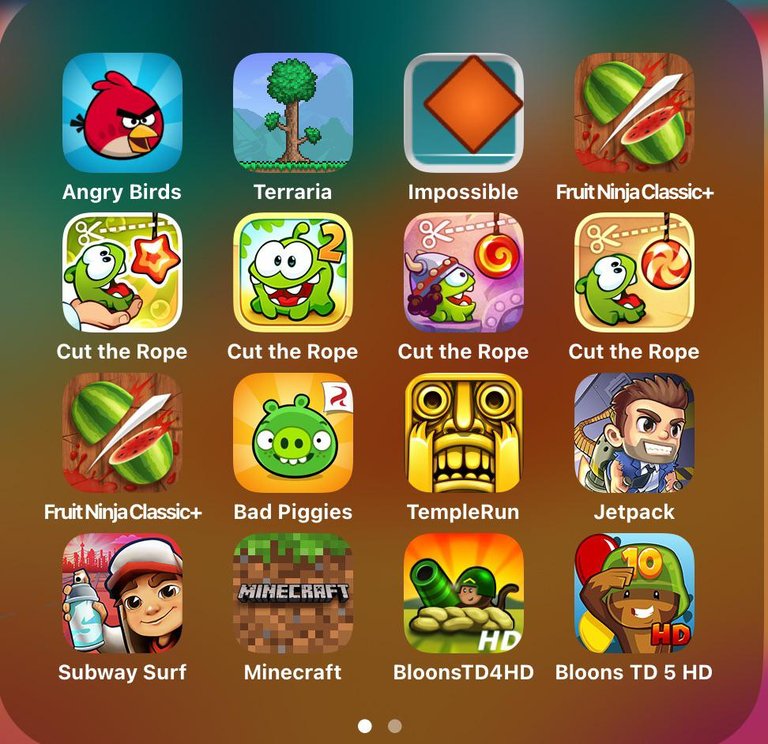Why "Pou" used to work.
All the screenshots in this post were taken directly from the game by me.

ENGLISH
Although it is easy to look down on it compared to more traditional alternatives, mobile gaming is one of the most interesting trends within the entire industry, not only for being an effective deployment of the surprising technical capabilities of smartphones, but for functioning as a kind of microcosm that repeats some mistakes typical of traditional video games, while inventing a large number of new sins.
From the times when simple arcades like Snake or Tetris were the rule, to the proliferation of the complex battle royale, mobile games have always been a kind of bizarre version of their desktop counterpart, eager to establish themselves as a worthy alternative, but at the same time very aware that they exist in a slightly different reality.
Although nowadays it is normal to see technical gems that could well be at the level of a triple AAA PlayStation 3 or Xbox 360, I find it a little ironic that when I think about the peak of mobile gaming I don't necessarily associate it with the decade of The 2020s, in fact, for me it is much easier and more logical to think about the humble beginnings of the SmartPhone, or at least in that time frame when it was finally beginning to penetrate the public.
Titles like Angry Birds, Temple Run or Where's My Water are just some examples of the predominant philosophy of the past decade, experiences that focused more on taking advantage of the physical format of our SmartPhones over their technical specifications, but at the same time, they were characterized by an undeniable timelessness.
It is precisely in this context that "Pou" was born, one of the most complete and addictive virtual pets that have ever existed, although its visual presentation is deficient in several areas.
One of the main problems that I used to have with most mobile games of its time was the lack of an incentive to stay engaged beyond the gameplay itself, endless runners like Subway Surfers or Temple Run had as their sole objective the constant pursuit of a new record, with the occasional purchase of some aesthetic object that will not affect the gameplay. Others like Angry Birds or Where's My Water focused almost entirely on the search for the perfect score (Or three stars, as it was generally represented) but the lack of a solid narrative made it easy to leave them behind.
And this is wrong? Of course not, they were still fun experiences, created to keep us entertained for a couple of days and then be discarded for the inevitable sequel they would have. Classics like Pacman or the aforementioned Tetris use a similar scheme, and this does not mean they stop being absolute classics.
My only problem in these cases was that when the gameplay loop was broken, the video game never left anything to its player beyond the lost time, and this is something that I have honestly never felt with traditional video games.
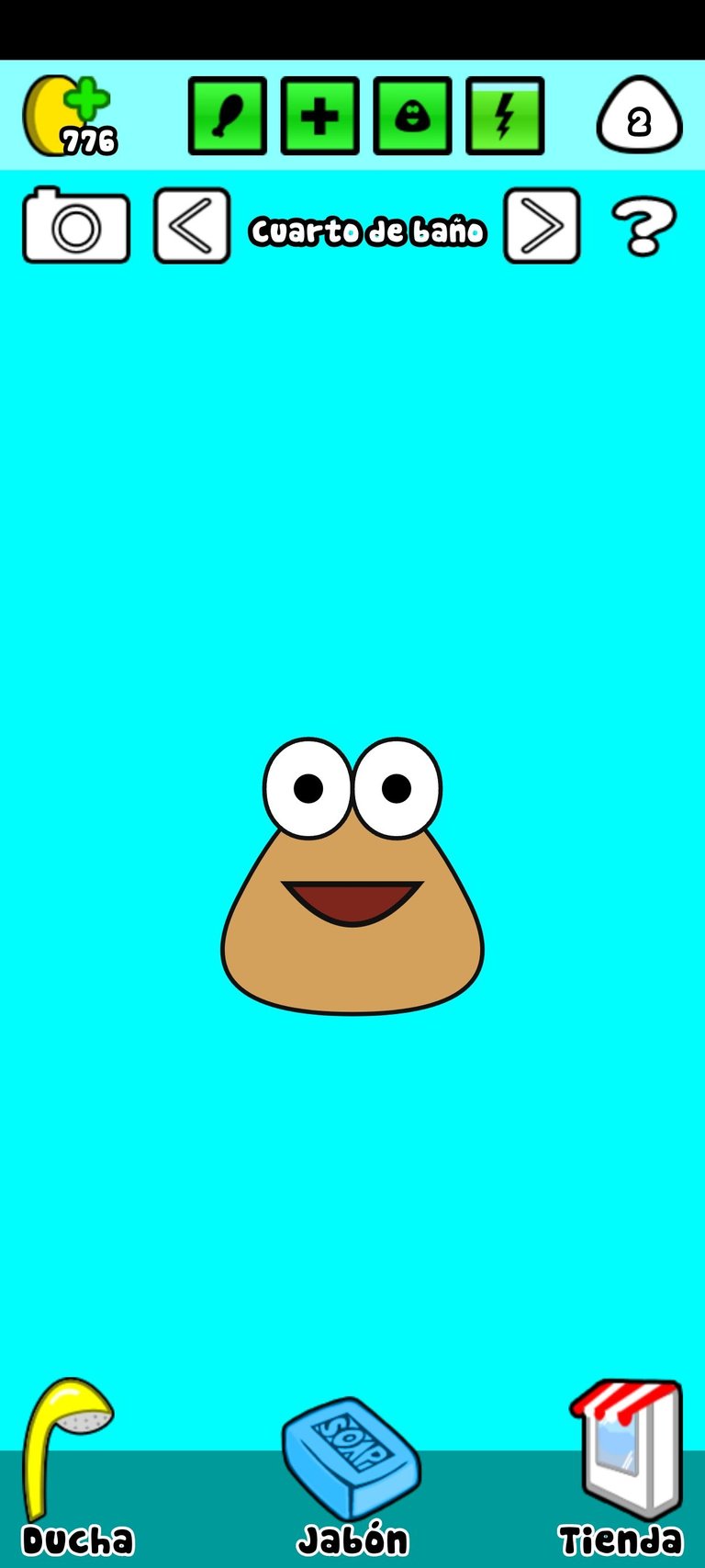
This did not happen with Pou, since apart from its main focus (The idea of feeding, dressing and cleaning a virtual creature), there were multiple incentives to always return even if it lacked any type of online component.
Apart from the existence of multiple mini-games (all with their own record systems and individual achievements), Pou offers a large number of aesthetic elements to acquire with the accumulated points, clothing changes, accessories and colors are just some of the options available. are at our disposal.
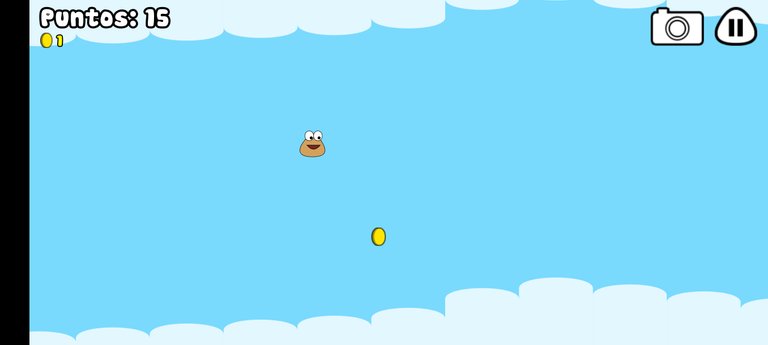
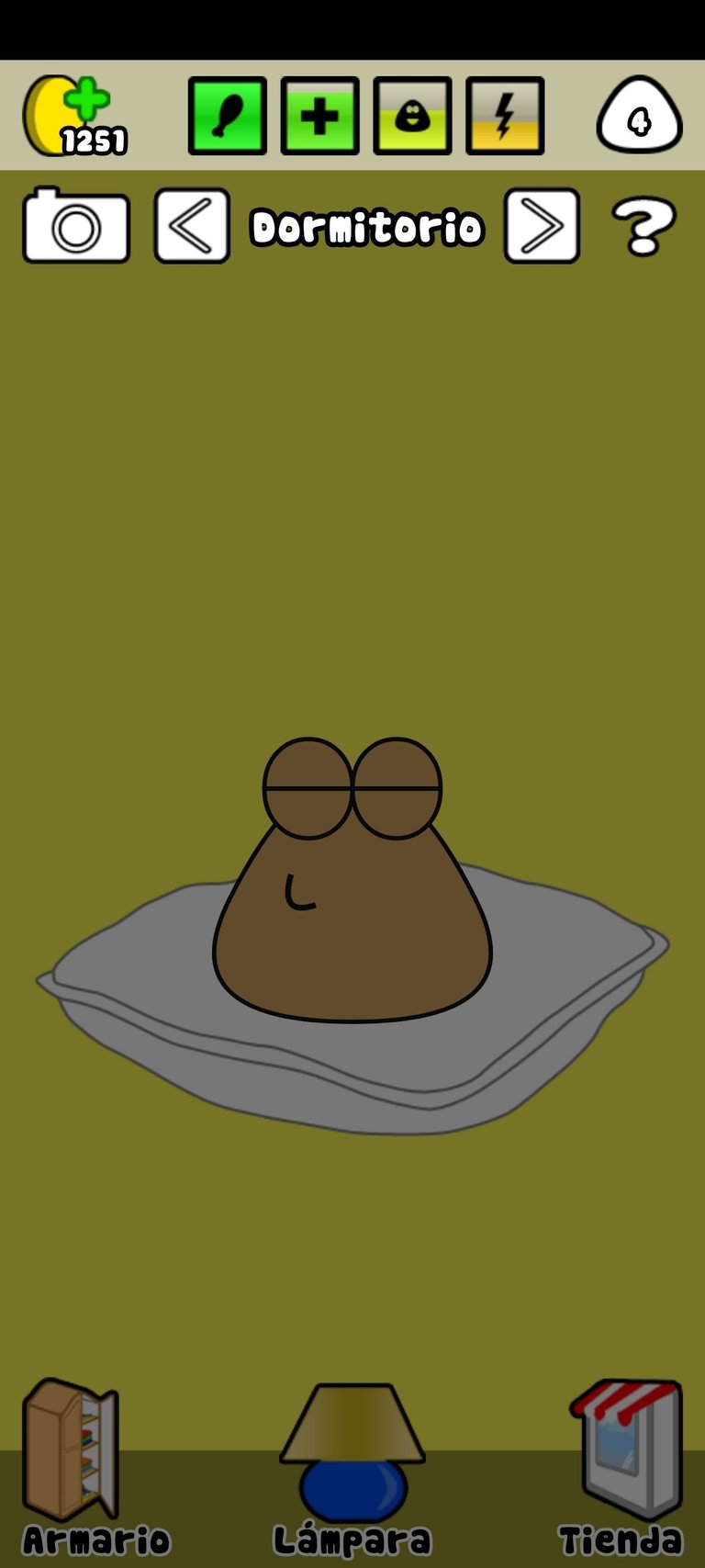
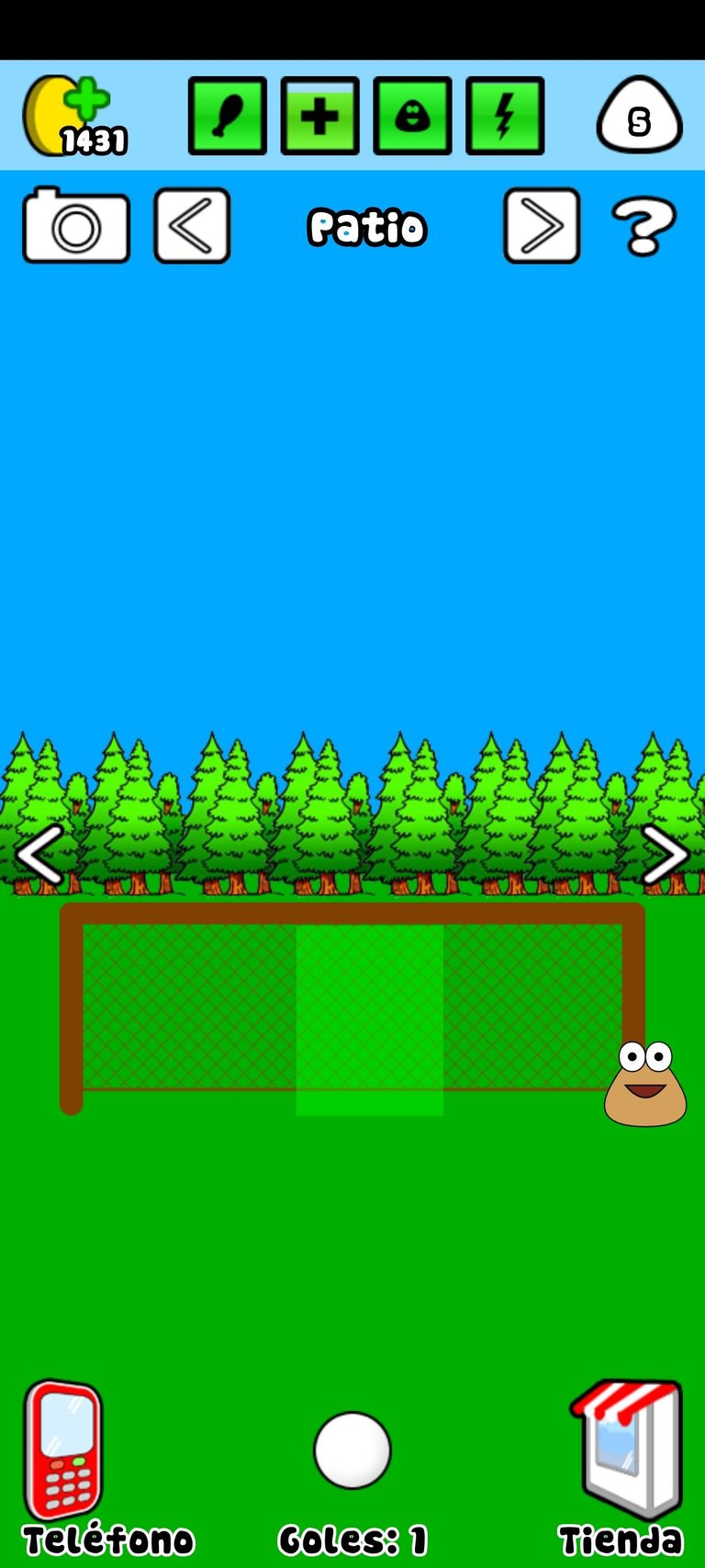
Being a virtual pet, we must also take care of meeting our Pou's needs, such as feeding him, bathing him, giving him entertainment and letting him rest. Pou levels up, grows, and although in objective terms there is nothing that differentiates him from other users' pets, there are enough layers of customization to make our experience with him feel unique.
In short, Pou is a perfect representation of everything that mobile gaming meant a decade ago: unlimited fun, simple but effective game mechanics, and a humble graphic design that can allow us to play for long periods of time without draining our batteries. Microtransactions exist but they do not obstruct our progress and in the end each of us can go at our own pace.
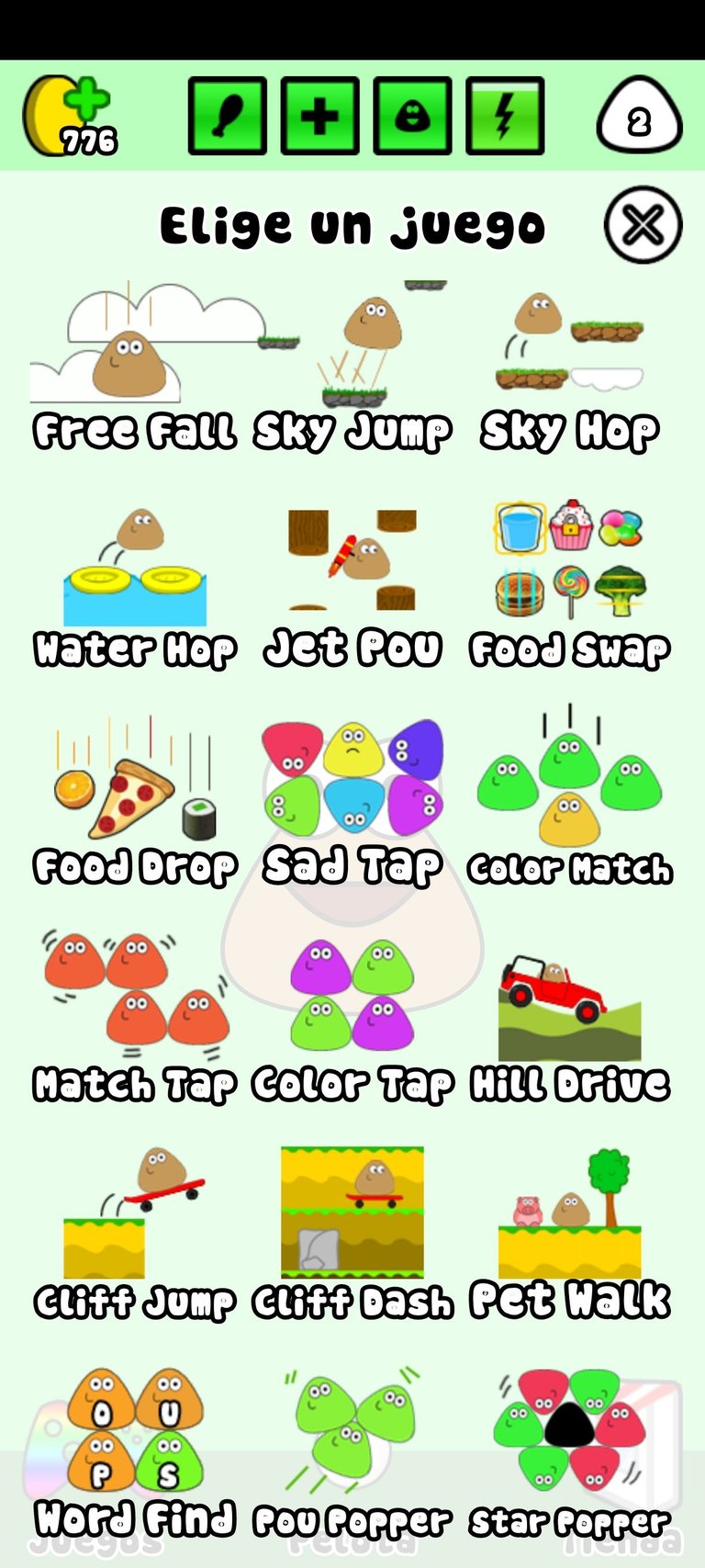
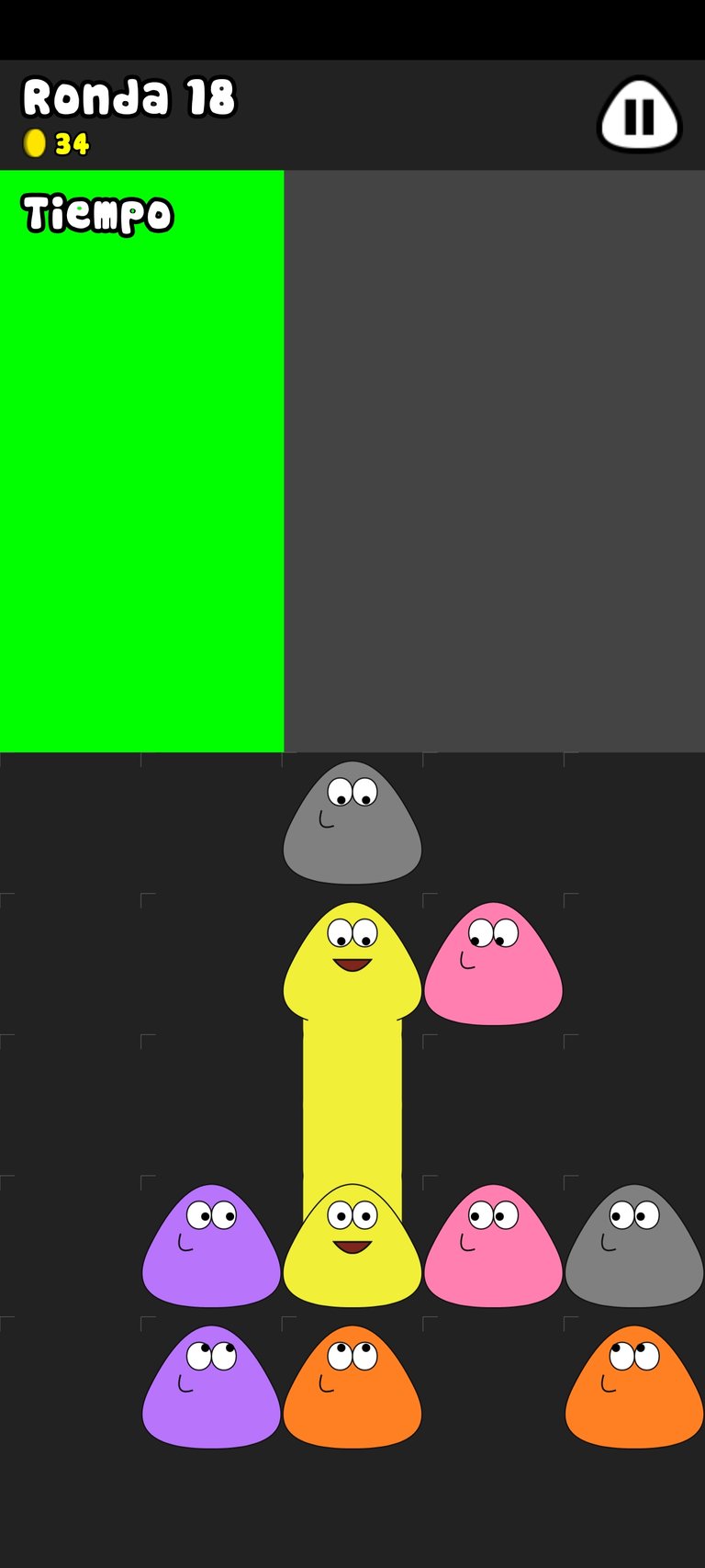
It took all the virtues of the industry and harmonized them in a wonderful way. And, while the industry has evolved in a radically different direction, it wouldn't be bad to see another experiment of this style again.

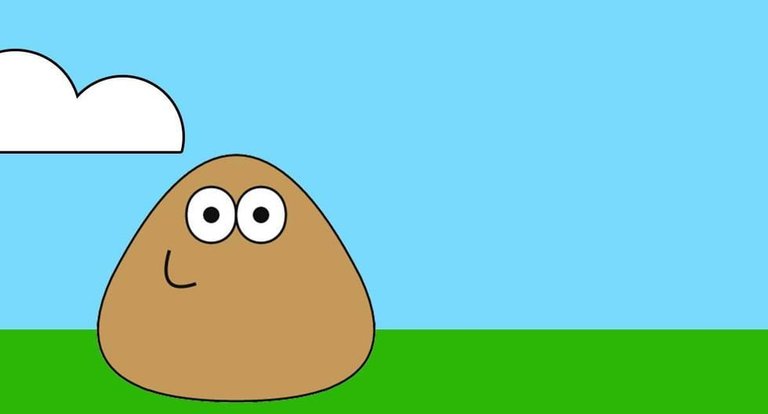
Source
Todas las capturas de pantalla en este post fueron tomadas directamente desde el juego por mi.

ESPAÑOL
Aunque es facil verlo por debajo del hombro frente a alternativas más tradicionales, el gaming móvil es una de las corrientes más interesantes dentro de toda la industria, no solo por resultar un despliegue efectivo de las sorprendentes capacidades técnicas de los smartphones, sino por funcionar como una especie de microcosmos que repite algunos errores propios de los videojuegos tradicionales, al mismo tiempo que inventa una gran cantidad de pecados nuevos.
Desde los tiempos en dónde los arcades simples como snake o tetris eran la regla, hasta la ploriferación del complejo battle royale, los juegos móviles siempre han sido una suerte de versión bizarro de su contraparte de sobremesa, ansiosos por erigirse como una alternativa digna, pero a la vez muy consciente de que existen en una realidad ligeramente diferente.
Si bien en la actualidad es normal ver joyas técnicas que bien podrían estar al nivel de un triple AAA del playstation 3 o el xbox 360, me parece un poco irónico que cuando pienso en la cúspide del juego móvil no necesariamente lo asocio con la década de los 2020s, de hecho, para mi es mucho mas facil y lógico pensar en los humildes inicios del SmartPhone, o al menos en ese margen de tiempo en dónde finalmente estaba empezando a calar en el público.
Títulos como Angry Birds, Temple Run o Where's My Water son solo algunos ejemplos de la filosofía predominante en la década pasada, experiencias que se enfocaban más en aprovechar el formato físico de nuestros SmartPhones por encima de su especificaciones técnicas, pero al mismo tiempo, estaban caracterizados por una innegable atemporalidad.
En este contexto precisamente es en el que nace "Pou", una de las mascotas virtuales más completas y adictivas que han existido, aunque su presentación visual sea deficiente en varias áreas.
Uno de los principales problemas que yo solía tener con la mayoría de los juegos móviles de su época era la falta de un incentivo para mantenerse enganchado más allá del propio gameplay, endless runners como Subway Surfers o Temple Run tenían como único objetivo la persecución constante de un nuevo record, con la ocasional compra de algún objeto estetico que no afectara el gameplay. Otros como Angry Birds o Where's My Water se enfocaban casi enteramente en la búsqueda del puntaje perfecto (O tres estrellas, como generalmente de representaba) pero la falta de una narrativa sólida hacia que fuese fácil dejarlos atrás.
¿Y esto está mal? Por supuesto que no, seguían siendo experiencias divertidas, creadas para mantenernos entretenidos un par de días y luego ser desechadas por la inevitable secuela que tendrían. Clásicos como Pacman o el anteriormente mencionado Tetris usan un esquema similar, y no por esto dejan de ser clásicos absolutos.
Mi único problema en estos casos era que al momento de quebrarse el gameplay loop el videojuego nunca le dejaba nada a su jugador más allá del tiempo perdido, y esto es algo que honestamente nunca he sentido con los videojuegos tradicionales.

Esto no pasaba con Pou, ya que aparte de su foco principal (La idea de alimentar, vestir y limpiar una criatura virtual), existían múltiples incentivos para volver siempre aunque careciera de cualquier tipo de componente online.
Aparte de la existencia de múltiples minijuegos (todos con sus propios sistemas de records y logros individuales), Pou ofrece una gran cantidad de elementos estéticos para adquirir con los puntos acumulados, cambios de ropa, accesorios y colores son solo algunas de las opciones que se encuentran a nuestra disposición.



Al ser una mascota virtual, también debemos encargarnos de satisfacer las necesidades de nuestro Pou, como alimentarlo, bañarlo, darle entretenimiento y dejarlo descansar. Pou sube de nivel, crece y aunque en términos objetivos no existe nada que lo diferencie respecto a las mascotas de otros usuarios, existen suficientes capas de personalización como para que nuestra experiencia con el se sienta única.
En pocas palabras, Pou es una representación perfecta de todo lo que significaba el gaming móvil hace una década, diversión ilimitada, mecánicas de juego simple pero efectivas, y un diseño gráfico humilde que puede permitirnos jugar por ratos prolongados sin desgastar nuestras baterías. Las microtransacciones existen pero no obstruyen nuestro progreso y al final cada uno de nosotros puede ir a su propio ritmo.


Tomaba todas las virtudes de la industria y las armonizaba de una forma maravillosa. Y, si bien la industria ha evolucionado en una dirección radicalmente diferente, no estaría mal volver a ver otro experimento de este estilo.

Twitter/Instagram/Letterbox: Alxxssss

